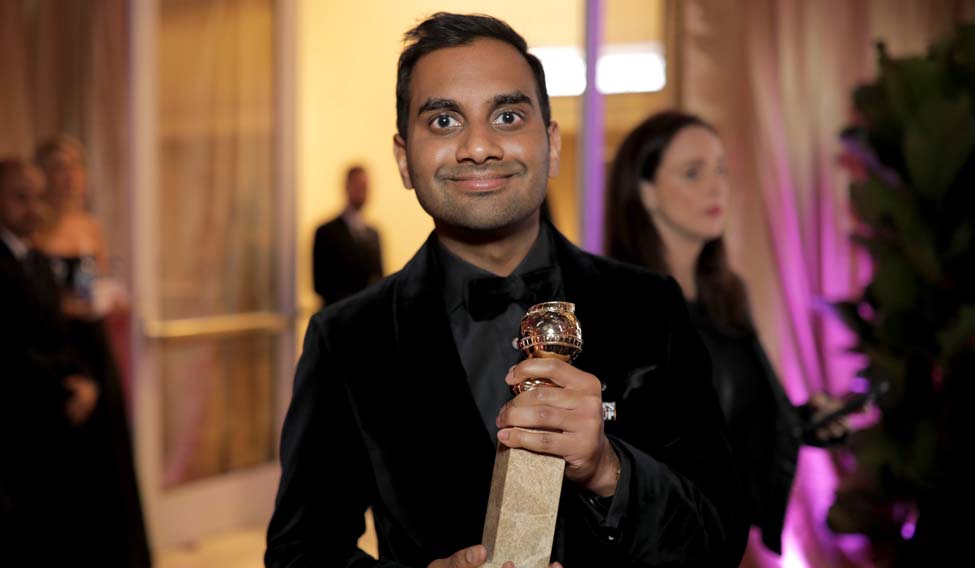In the Golden Globes award ceremony on Sunday, Indian-origin comedian and actor Aziz Ansari became the first Asian to win the award for best actor in a TV comedy. His globally acclaimed, and extremely binge-worthy, television show Master of None connected with the immigrant psyche like few other shows before it could. True, there were ones like Fresh Off a Boat by Eddie Huang, but Ansari's show packed that elusive, visceral punch.
"I genuinely didn't think I'd win because all the websites said I was going to lose. Also, I am glad we won this one because it would have really sucked to lose two of these in a row," Ansari said in his acceptance speech at the gala on Sunday night.
"The only reason my acting is good in that show is because everyone else holds me up," Ansari quipped.
In the show, Aziz plays the part of Dev Shah, an actor who likes to hang out with his friends, hit on pretty barmaids and even have—get this—sex occasionally. The pilot episode opens with a scene where Dev gets intimate with a woman, gets spooked when the rubber breaks mid-way and rushes to a pharmacy for Plan B, the morning after-pills. No, there are no gross stereotypes of pot-bellied Indian men with a submissive wife and eight children on a leash (I am looking at you, The Simpsons). No, Dev is an actor with ambition, not a workaholic 7-eleven manager or a call centre operative. And most importantly, for once, an Indian character played the central role in a television series that addressed the immigrant experience with a rare element of nuance.
When it came to casting for the role of his parents, Aziz decided to go with the real ones. His father Shoukath and Fatima Ansari filled that role with aplomb. Best of all, the series found its footing lightning fast; the second episode named 'Parents' expertly treaded the dual minefields—depicting your home country, and the generation gap between the first and second generation immigrants. In the episode, Ansari and his friend take out their parents—from India and Taiwan respectively—for dinner and listen to the stories of how they managed to reach America. Some scenes, like the one where Ansari's mom says that she would not pick up the phone as she was afraid that people would not understand her accent, was intimately human. The show made, as the expats put it, television relatable like never before.
Ansari, though the most popular, is just one among the mushrooming group of assertive Asian American performers. In 2017, Indian-origin comedian Hari Kondabolu went on a tirade against the offensive Simpson's character Apu, in a hilarious documentary The Problem with Apu. The documentary brings along Indian-American celebrities from various wakes of life, even the US Surgeon General Vivek Murthy, all of whom reminisced about the damage that the character and his catchphrase caused in their lives. Be it Hasan Minhaj and his critically acclaimed Homecoming King, or Kumail Nanjiani's The Big Sick, the message is clear: we are characters not caricatures.






